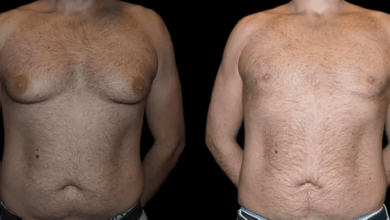Overcoming Food Allergies: How to Find the Right Treatment Plan
Food allergies affect millions of people worldwide, leading to a wide range of symptoms that can vary from mild discomfort to life-threatening reactions. Managing these allergies is not just about avoiding certain foods; it’s about understanding your body’s responses and finding the right treatment plan that ensures your safety and quality of life. This article will guide you through the process of overcoming food allergies and highlight how a specialized food allergy treatment clinic can help you find the most effective plan tailored to your needs.
Understanding Food Allergies
Food allergies occur when your immune system mistakenly identifies a harmless food protein as a threat and reacts against it. This reaction can trigger symptoms that range from mild, such as hives or an upset stomach, to severe, such as anaphylaxis, which can be life-threatening.
Common allergens include:
- Peanuts and Tree Nuts: These are among the most common and severe allergens, often leading to anaphylaxis.
- Dairy Products: Many people are allergic to the proteins found in milk.
- Eggs: Egg allergies are common, particularly in children, though some may outgrow it.
- Shellfish and Fish: Seafood allergies can develop at any age and are often lifelong.
- Soy and Wheat: These allergies are particularly challenging due to their prevalence in processed foods.
Understanding the specific allergen that affects you is the first step in managing your condition, and a food allergy treatment clinic can provide the necessary testing and diagnosis.
Diagnosing Food Allergies
Accurate diagnosis is essential for effective treatment. Misdiagnosis or self-diagnosis can lead to unnecessary dietary restrictions or exposure to allergens, both of which can have significant health impacts. A food allergy treatment clinic offers specialized diagnostic tools to pinpoint your exact allergies.
1. Skin Prick Testing
This is one of the most common methods used to diagnose food allergies. During a skin prick test, small amounts of potential allergens are applied to your skin, usually on the forearm or back. If you’re allergic to a substance, a small bump or hive will appear at the site within 15 to 20 minutes. This test is quick, relatively painless, and provides immediate results.
2. Blood Tests
Blood tests, such as the ImmunoCAP test, measure the amount of immunoglobulin E (IgE) antibodies in your blood that are produced in response to specific allergens. While not as immediate as skin prick tests, blood tests are useful, especially for patients who have skin conditions that might interfere with the results of skin testing.
3. Oral Food Challenges
Considered the gold standard for diagnosing food allergies, an oral food challenge involves consuming small amounts of the suspected allergen under strict medical supervision in a food allergy treatment clinic. This test is particularly useful when the results of other tests are inconclusive, but it carries a risk of a severe allergic reaction, which is why it’s conducted in a controlled environment.
4. Elimination Diet
In cases where other tests are inconclusive, an elimination diet may be recommended. This involves removing suspected allergens from your diet for several weeks and then gradually reintroducing them while monitoring for reactions. It’s a time-consuming process but can be very effective in identifying food allergies.
Developing a Personalized Treatment Plan
Once your allergies have been accurately diagnosed, the next step is developing a personalized treatment plan. This plan should be comprehensive, addressing both immediate management and long-term care. A food allergy treatment clinic will work with you to create a plan that suits your lifestyle and health needs.
1. Avoidance Strategies
The cornerstone of managing food allergies is avoiding the allergens that trigger reactions. Your treatment plan will include detailed guidance on how to identify and avoid these allergens.
- Reading Labels: You’ll be taught how to read food labels carefully to avoid hidden allergens. Many foods contain ingredients derived from common allergens, so knowing how to identify these is crucial.
- Dining Out Safely: Eating out can be challenging with food allergies. Your clinic may provide you with strategies to communicate your dietary needs effectively to restaurant staff and tips on choosing safe menu options.
- Cross-Contamination Prevention: At home, you’ll learn how to prevent cross-contamination in your kitchen, ensuring that your food remains safe from allergens.
2. Medication Management
Medications play a critical role in managing food allergies, particularly for treating symptoms and preventing severe reactions.
- Antihistamines: These are often used to treat mild allergic reactions. They can alleviate symptoms like itching, hives, and sneezing but are not effective for severe reactions.
- Epinephrine Auto-Injectors: For individuals at risk of anaphylaxis, carrying an epinephrine auto-injector (such as an EpiPen) is essential. Your clinic will train you on how and when to use this life-saving device.
- Corticosteroids: These may be prescribed to reduce inflammation following a severe allergic reaction.
- Bronchodilators: If your food allergy triggers asthma-like symptoms, a bronchodilator may be included in your treatment plan.
Your food allergy treatment clinic will monitor your response to these medications and adjust your treatment plan as needed.
3. Immunotherapy
For some patients, particularly those with severe or multiple food allergies, immunotherapy may be an option. This treatment involves gradually exposing the patient to small amounts of the allergen to build up tolerance over time.
- Oral Immunotherapy (OIT): This involves consuming small amounts of the allergen, under close medical supervision, with the goal of desensitizing the immune system.
- Epicutaneous Immunotherapy (EPIT): In this method, allergens are delivered through a skin patch, which is less invasive but still effective in building tolerance.
- Sublingual Immunotherapy (SLIT): This involves placing a small dose of the allergen under the tongue. It’s commonly used for environmental allergens but is being explored for food allergies as well.
Immunotherapy is still a developing field for food allergies, and it’s not suitable for everyone. However, for those who qualify, it can lead to significant improvements in their ability to tolerate foods that were once off-limits.
4. Emergency Action Plan
An essential part of your treatment plan is having a clear and actionable emergency plan in case of accidental exposure to an allergen.
- Recognizing Symptoms: You’ll be educated on how to recognize the early signs of an allergic reaction, including those that could lead to anaphylaxis.
- Emergency Contacts: Your plan will include a list of emergency contacts, including your food allergy treatment clinic, local hospitals, and family members.
- Step-by-Step Response: You’ll have a clear, step-by-step guide on what to do in an emergency, including when to administer epinephrine and when to seek medical help.
Having a well-prepared emergency plan can be the difference between life and death during a severe allergic reaction.
The Role of Ongoing Care and Support
Managing food allergies is not a one-time event but a lifelong commitment. A food allergy treatment clinic provides ongoing care and support to help you navigate this journey.
1. Regular Follow-Ups
Regular appointments with your clinic are crucial for monitoring your condition, adjusting your treatment plan, and staying updated on new research and treatment options. These follow-ups ensure that your management strategies evolve with your needs.
2. Education and Resources
A food allergy treatment clinic often provides educational resources to help you stay informed about your condition. These may include:
- Workshops and Seminars: Clinics may host events that cover topics like new treatments, cooking safely with allergies, and managing allergies in children.
- Personalized Counseling: One-on-one counseling sessions allow you to ask questions, address concerns, and receive tailored advice from healthcare professionals.
- Online Resources: Many clinics offer access to online portals where you can find up-to-date information on food allergies, treatment options, and patient support groups.
3. Support Groups
Living with food allergies can be isolating, especially for children and teenagers. Support groups provide a safe space to share experiences, ask questions, and find encouragement from others who understand the challenges you face. Many food allergy treatment clinics either run or can connect you with these groups.
4. Psychological Support
The constant vigilance required to manage food allergies can take a toll on your mental health. Anxiety, stress, and even depression are not uncommon among those with severe food allergies. Your clinic may offer psychological support services or refer you to a specialist who can help you cope with the emotional aspects of your condition.
Choosing the Right Food Allergy Treatment Clinic
Selecting the right food allergy treatment clinic is essential for effective management of your condition. Here are some factors to consider when choosing a clinic:
1. Expertise and Experience
Look for a clinic with board-certified allergists who specialize in food allergies. Their expertise and experience will be crucial in diagnosing your condition accurately and developing an effective treatment plan.
2. Comprehensive Services
A good food allergy treatment clinic should offer a full range of services, including diagnostic testing, medication management, immunotherapy, and emergency care. The more comprehensive the care, the better your chances of managing your allergies successfully.
3. Patient-Centered Care
The clinic should prioritize patient-centered care, meaning they tailor treatment plans to your specific needs and preferences. This includes taking the time to listen to your concerns, explaining your options, and involving you in the decision-making process.
4. Accessibility and Convenience
Consider the clinic’s location, hours of operation, and availability of telehealth services. A clinic that is easy to access and offers flexible appointment options will make it easier for you to stay on top of your treatment plan.
5. Reputation and Reviews
Finally, research the clinic’s reputation by reading patient reviews and testimonials. A clinic with positive feedback from patients is likely to provide high-quality care.
Conclusion
Managing food allergies requires a comprehensive and personalized approach. By working with a specialized food allergy treatment clinic, you can develop a treatment plan that not only keeps you safe but also allows you to live a full and satisfying life. From accurate diagnosis to ongoing care and support, the right clinic will empower you to overcome your food allergies and enjoy peace of mind.



